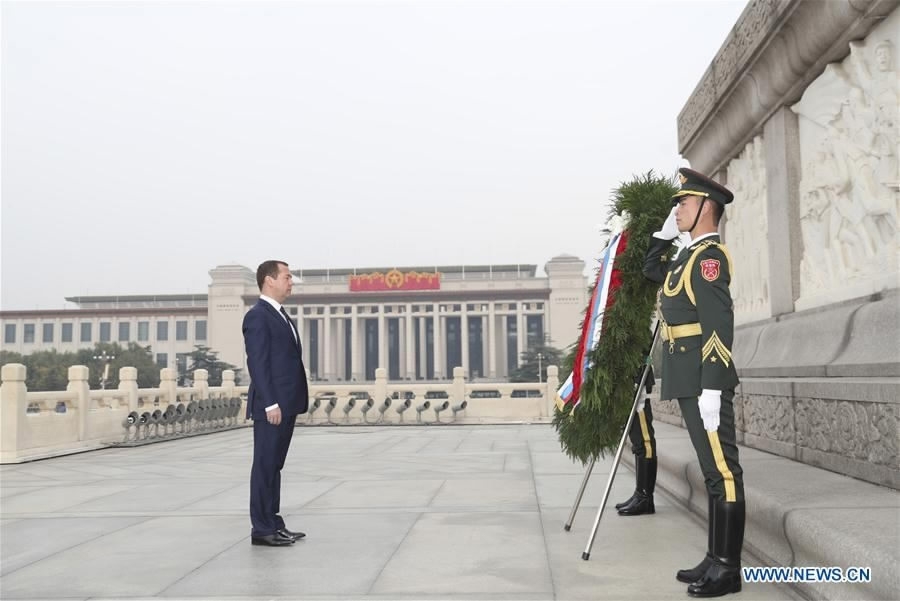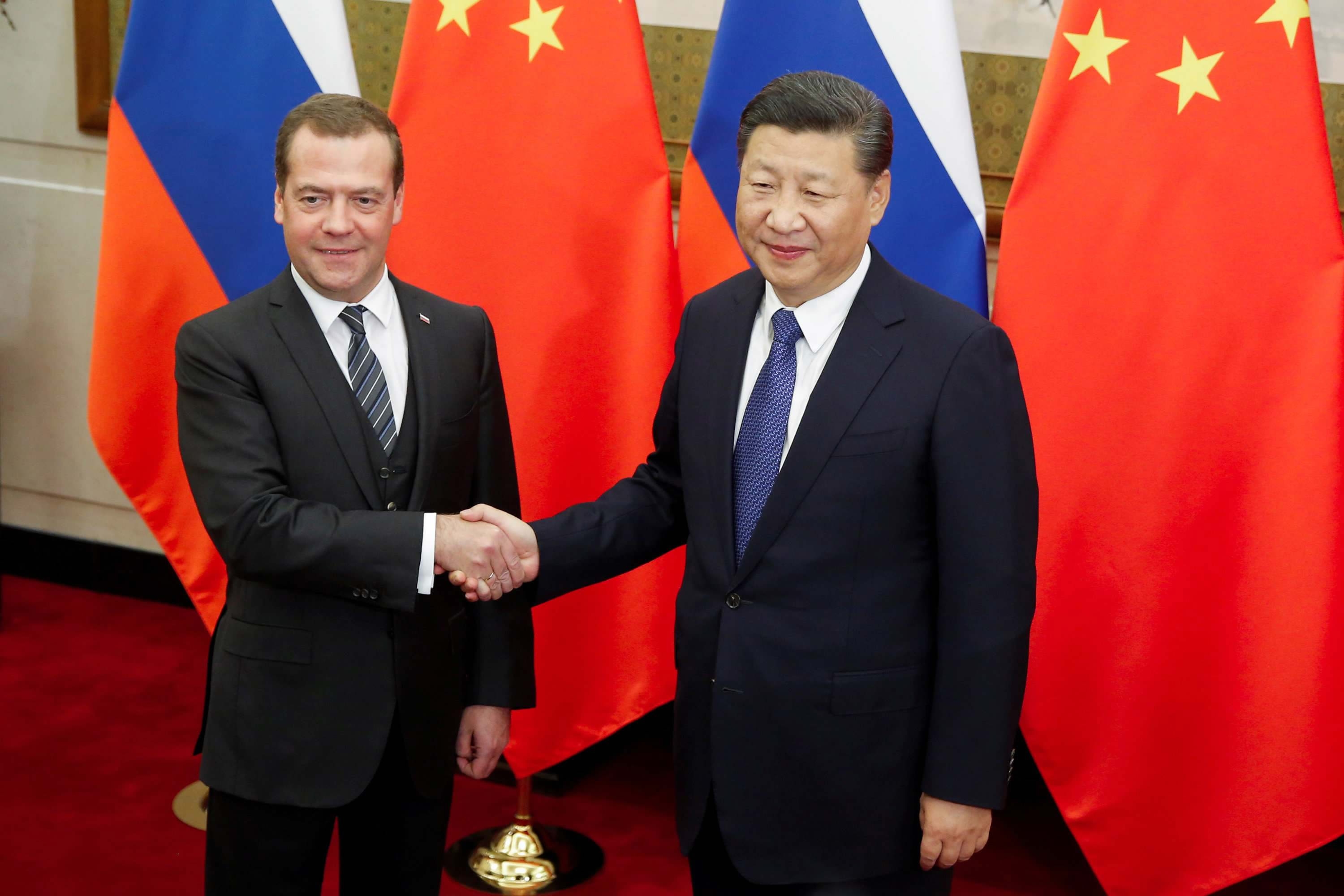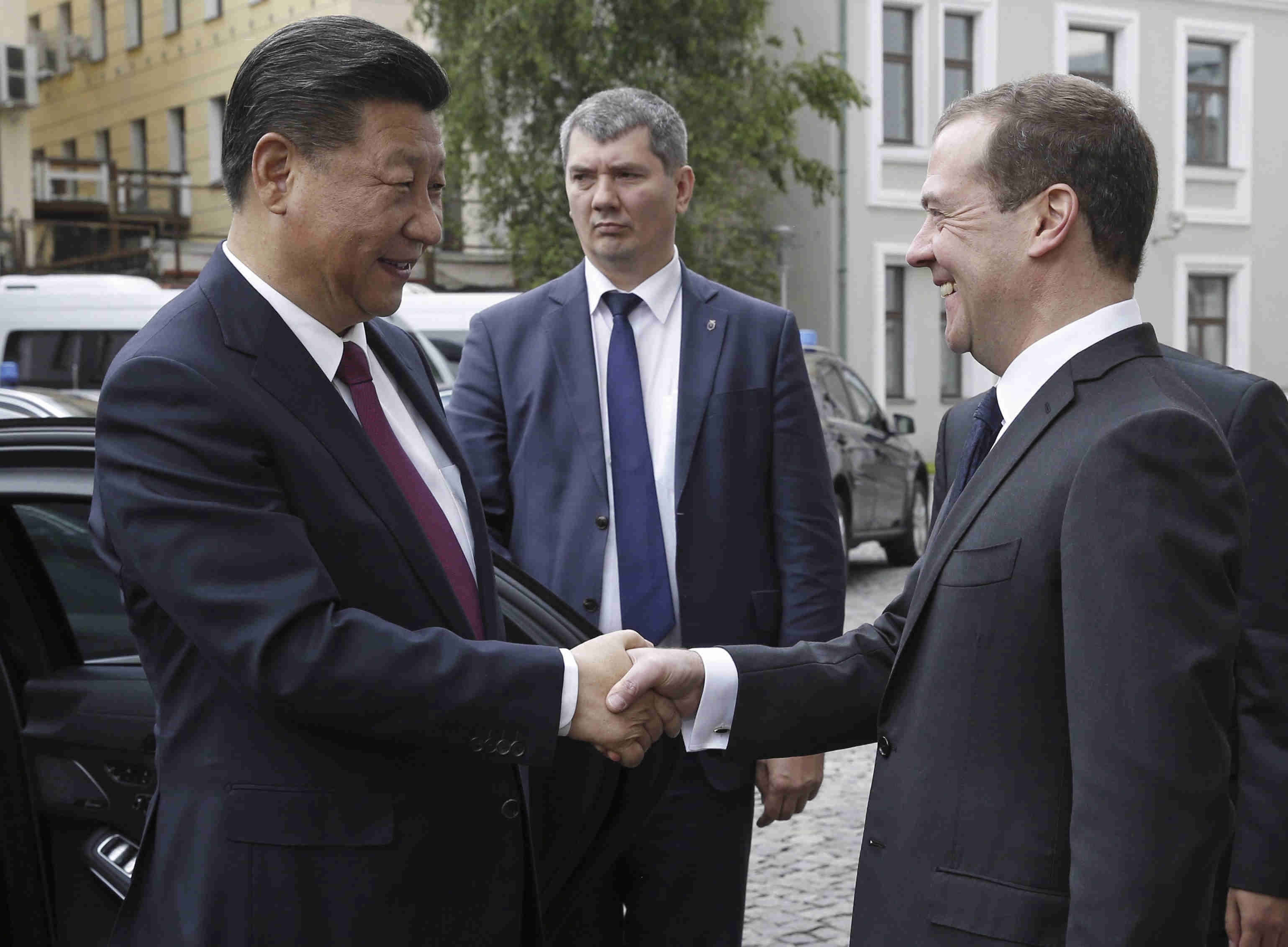
Opinions
16:36, 10-Nov-2017
Opinion: China, US, Russia to lead world globalization again avoiding Thucydides trap
By Wu Fei

China has been busy this month. Russian Prime Minister Medvedev spent two days here after the conclusion of the 19th National Congress of the Communist Party of China (CPC). US President Donald Trump has just finished his first state visit to the country. While he was here, the two countries signed trade deals worth more than 250 billion US dollars.

Russian Prime Minister Dmitry Medvedev lays a wreath at the Monument to the People's Heroes at the Tiananmen Square in Beijing, China, October 31, 2017. /Xinhua Photo
Russian Prime Minister Dmitry Medvedev lays a wreath at the Monument to the People's Heroes at the Tiananmen Square in Beijing, China, October 31, 2017. /Xinhua Photo
Now President Xi Jinping is in Vietnam for the Asia-Pacific Economic Cooperation (APEC) Leaders’ meeting, where globalization, especially how the Belt and Road Initiative can work with the economic strategies in the Indo-Pacific region, will be an important part of the discussion.
At the same time, Nick Bryant’s BBC article outlined the point in time when America stopped being great. In the article, he mentions that the US won’t be the only leader in terms of globalization, as Xi Jinping’s Belt and Road Initiative is already very clear.

Chinese President Xi Jinping and Russian Prime Minister Dmitry Medvedev shake hands before talks at the Diaoyutai State Guesthouse in Beijing, China, November 1, 2017. /Reuters Photo
Chinese President Xi Jinping and Russian Prime Minister Dmitry Medvedev shake hands before talks at the Diaoyutai State Guesthouse in Beijing, China, November 1, 2017. /Reuters Photo
In his meeting with Medvedev, President Xi Jinping spoke of China and Russia’s joint cooperation, their shared use of the North Polar sea route and the goal of building a Silk Road on the ice. The two sides also signed close to 20 bilateral cooperative documents in fields such as investment, energy, aerospace and finance.
The US and China signed 34 deals worth 253.5 billion US dollars on Thursday, which was seen as a strong signal of increased trade between the world's two largest economies. This means that China and the US will lead the world’s globalization, stopping it from falling in the Thucydides trap – a concept which describes rising tensions between established and emerging world powers.
Trump’s administration is currently embroiled in an investigation about whether his campaign team colluded with Russia. Trump has made counter-claims against Hillary Clinton’s campaign.

Russian Prime Minister Dmitry Medvedev shakes hands with Chinese President Xi Jinping during a meeting in Moscow, Russia, July 4, 2017. /Reuters Photo
Russian Prime Minister Dmitry Medvedev shakes hands with Chinese President Xi Jinping during a meeting in Moscow, Russia, July 4, 2017. /Reuters Photo
Trump’s troubles mean the US still cannot create a clear direction for globalization. Between 2000 and 2011, the overall net wealth of US households fell. By 2014, the richest one percent of Americans had accrued more wealth than the bottom 90 percent.
The year 2001 brought the horror of September 11th, an event more traumatic than Pearl Harbor. Post-9/11 America became less welcome and more suspicious. The Bush administration's "war on terror" led to open-ended conflicts in Afghanistan and Iraq and drained the country of blood and treasure. The collapse of Lehman Brothers in 2008, and the great recession that followed, arguably had a more lasting impact on the American psyche than the destruction of the Twin Towers. Just as 9/11 had undermined confidence in the country's national security, the financial collapse shattered confidence in its economic security.
In the Coal Belt, there's been delight at the rescinding of Obama's Clean Power Plan. In the Bible Belt, evangelicals behold Trump as a fellow victim of sneering liberal elites. In the Sun Belt, close to the Mexican border, there's wide support for his crackdown on illegal immigration. That means the US is just a step away from economic crisis.
Medvedev’s speech showed that Russia is willing to cooperate with China and its Belt and Road Initiative. Donald Trump also needs Chinese help for the US’ ill economy. APEC will discuss globalization in the Asia-Pacific region and how it can affect world economic growth.
(Wu Fei is a Senior Researcher of CHARHAR institute, Professor of Jinan University School of Journalism and Communication. The article reflects the author’s opinion, not necessarily the view of CGTN.)

SITEMAP
Copyright © 2018 CGTN. Beijing ICP prepared NO.16065310-3
Copyright © 2018 CGTN. Beijing ICP prepared NO.16065310-3